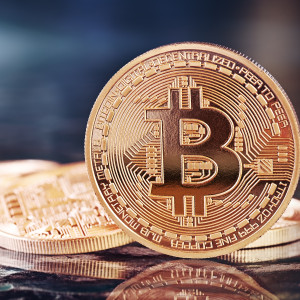The internet is abuzz with chatter and questions about cryptocurrency—yes, again—after Bitcoin’s price recently broke $60,000 a coin. A serious question on many lips and screens is whether the federal government will allow this rival to the U.S. dollar to continue operating, or if it will regulate it more strictly — or even ban it.
Opinions on Bitcoin and cryptocurrencies, in general, vary widely. Elon Musk—the world’s richest man—is cautiously optimistic. At a recent Code Conference, he declared cryptocurrency is already too widespread for governments to destroy.
He may be right. But it is unwise to underestimate the destructive power of institutions whose power is threatened. If the government wants to shut down the crypto market, it may have the resources to do it. Regulators love picking winners and losers.
Musk’s companies SpaceX and Tesla exemplify this. SpaceX faced impending bankruptcy, and Goldman Sachs and other top lenders refused to provide the explosion-afflicted company with loans. However, NASA partnered with SpaceX, alleviating the money problems.
Tesla faced bankruptcy in 2008, and the Obama administration swooped in to bail it out. The price of electric vehicles exceeded their market value, so the government offered tax credits to make up the difference. Even now, with the company valued at over $1 trillion, the Biden administration is creating lucrative subsidies within the current infrastructure package that will further fund Musk’s overflowing piggybank.
These two examples highlight how the government has the power to prop up companies, people, and ideas it likes. Conversely, it can destroy those it doesn’t. Bitcoin rivals a core function of the government; this puts it on dangerous ground.
Governments can come after crypto, and some already have — China is already cracking down on digital coins. Last month, it prohibited its citizens from holding, trading, or mining coins, causing the entire market to crash. The U.S. currently seems unlikely to do the same. However, it has sent some concerning signals that current and prospective Bitcoin owners should keep in mind.
Earlier this year, the FBI revealed it had recovered over $2 million worth of Bitcoin from the hackers responsible for the Colonial Pipeline breach. Most thought this was impossible for technical reasons, but the Department of Justice report of the incident makes it clear that “there is no place beyond the reach of the FBI.”
Now, Secretary of the Treasury Janet Yellen has come out as being a crypto skeptic. The Security and Exchange Commission is considering increasing regulations on digital currencies. Some Washington decisionmakers have even floated the possibility of creating a so-called “Fedcoin”—the government’s very own cryptocurrency.
Whether the government will enter the crypto market or not is unclear; what is clear is that Musk is shortsighted in saying that it can’t squash the Bitcoin bug if it ever chooses to. It can prop it up as easily as it did his businesses, or crush it like it may have done to his competitors.
That is not to say that cryptocurrency is not a good short or long-term investment option. Every investment comes with risks, and when it comes to Bitcoin, possible federal interference is one of those risks—even if the world’s richest man doesn’t realize the gravity of that risk.

